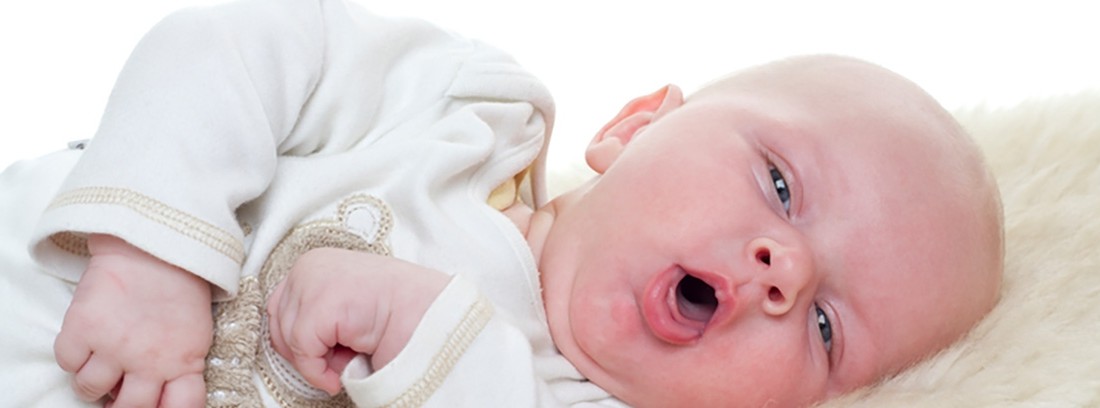Acute bronchiolitis

Acute bronchiolitis is a disease of the respiratory system that affects children under two years of age, especially those under 6 months of age. It consists of inflammation of the small airways in the lungs (bronchioles). Bronchiolitis is most common in the fall and winter months.
Causes
The cause of bronchiolitis is infectious. The most frequent cause is caused by the RSV virus (respiratory Syncytial Virus), although it can also be caused by other viruses.
The virus is transmitted from person to person through direct contact or through respiratory secretions when coughing or sneezing. In adults it causes a mild cold and in babies it can cause severe illness
There are some risk factors that can make bronchiolitis complicated and require hospital admission:
- Exposure to tobacco smoke
- Baby under six months
- Never have been breastfed
- Being a premature baby (born before 37 weeks gestation)
Symptoms
Some children may have few symptoms and a mild illness. All bronchiolitis starts out like a cold: runny nose, nasal congestion, cough, and fever. In two to three days, respiratory distress begins with wheezing and a worsening cough.
The baby breathes faster, is irritable, and refuses to feed. If the symptoms are very severe, there may be a lack of oxygen due to difficulty in breathing and the child may turn bluish (cyanotic); this is an emergency situation.
As the child has difficulty breathing, the nostrils dilate with each breath, and the muscles of the abdomen contract (pull).
It is usually accompanied by fever and unwell baby. A decrease in oxygen levels in the blood can be observed.
Bronchiolitis lasts between 7 and 30 days, depending on the severity
Treatment
Most children do not need hospital admission and treatment can be carried out at home.
Since the cause is a virus, antibiotics are not helpful. It is advisable to keep the child in a smoke-free environment and offer him fluids frequently. It is useful to keep it semi-upright on its back, to facilitate breathing and perform nasal washes with physiological saline.
In cases where hospital admission is required, it will be necessary to administer oxygen and some specific treatment to reduce inflammation and dilate the bronchioles.
(Updated at Apr 14 / 2024)